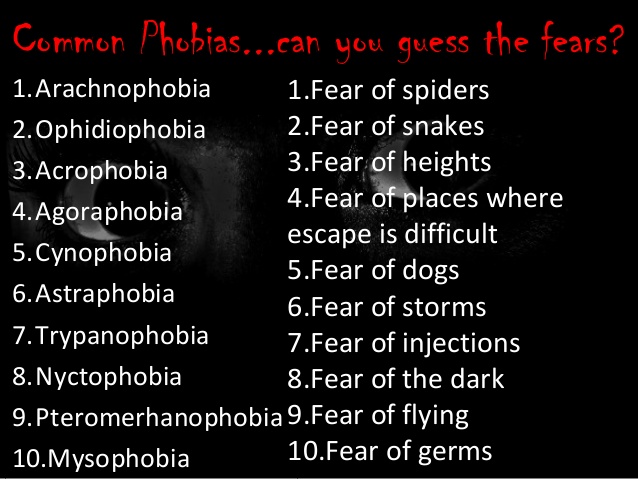About Psychotherapy
Why see a psychotherapist or counsellor?
People go to see a psychotherapist or counsellor for a range of different reasons. He or she might experience a feeling that something is not right, perhaps a feeling of discontent or of life not being fulfilling. Sometimes there is acute distress, depression or overwhelming anxiety. As an existential therapist working psychoanalytically, I work with each person to uncover underlying causes and aim to resolve issues and alleviate distress.
Here are some of the issues that a client might present to a counsellor or psychotherapist:
Relationship Issues
We are all in relationships all of the time. This is one of the characteristics of being human and it brings problems for most of us at some time, whether the relationships are with our life partner, lover, parents, siblings, friends, work colleagues or children. This is the broadest category of reasons why a person might consult a psychotherapist and may include difficulties in forming relationships, difficulties in maintaining relationships, issues of trust, intimacy or perhaps sexual issues, including loss of desire. The relationship issue may concern a sexual partner or lack of one; alternatively, the relationship may be a friendship, a family matter such as with a parent, a sibling or a child or a work issue perhaps with a boss, a peer or an employee.
To work on relationship issues, a person may choose to attend individual therapy or it may be more helpful to come to Couples or Family therapy.
Anger Issues
If a person wants to live a satisfactory life, it is necessary to get on with other people and therefore essential to manage one's own anger. Over two thousand years ago, Aristotle wrote:
"Anyone can become angry – that is easy, but to be angry with the right person, and to the right degree and at the right time, and for the right purpose, and in the right way, that is not within everyone’s power and that is not easy."
Psychotherapy can help to elucidate all of Aristotle’s conditions and help you to gain greater self-awareness about why you are angry and how you can express that anger without harming other people or yourself.
Depression
The term depression includes a very wide range of states of mind. Colloquially, if a person says he or she is depressed, what they mean could range from being a bit down in the dumps to feeling unable to get out of bed in the morning. Most of us experience the former from time to time but at the extreme end of the spectrum, it is important to visit a GP as soon as possible. A GP or psychiatrist can prescribe antidepressants which may be very helpful if a person feels unable to function as a result of depression. If someone is in a deep hole and cannot get out, they might need someone to throw them a rope. Antidepressants can perform this function.
The important thing is that once you are out of the deep hole, you let go of the rope, or in this case: stop taking the antidepressants. For those who are recovering from a deep depression or moderately depressed, antidepressants may sometimes hinder your recovery by taking away the motivation to make the changes in your life necessary to regain your zest for life. It is in these states of mind where psychotherapy can help you to lift yourself out of depression.

Self-Harm
Self-harm can take many forms, for example: cutting, burning, poisoning, rubbering (using an ordinary pencil eraser to lacerate flesh), pulling out hair; in short, causing intentional physical harm to oneself by any method. The reasons for this sort of activity are many. It may be secret and sometimes accompanied by a ritual or alternatively, the self-harm can be visible and serves as a form of communication, a cry for help. Self-hatred is usually one aspect of the self-harming and often self-punishment for a perceived failure. The sufferer is usually quite desperate and the self-harm gives some relief. These are very complex issues with roots usually in childhood experiences and need long term work with a trained psychotherapist.
Eating Disorders
Eating disorders include anorexia, bulimia and binge-eating. These three disorders are different but each can be seen as a form of self-harm and each has elements of addiction. Eating disorders are sometimes discussed as if they are teenage issues, however they can start in childhood and continue for the whole of someone's life. Eating is a fundamental human activity and consequently, disorders may be deep-seated and extremely difficult to address. The roots lie in childhood experiences and a psychotherapist working psychoanalytically is able to help uncover these early, sometimes pre-memory experiences and trace through the development of the disorder and its current manifestation in order to resolve the issue. To be fully effective, this work needs to be long term.
Habits and obsessions
Human beings are creatures of habit and the range of behaviours covered by the term habit is vast. Some habits are praised by society for example, hard work – whether paid or voluntary- or an obsession with study of an academic subject. Other habits – particularly substance abuse – may come under the broad definition of self-harm. To an existential therapist, all habits and obsessions involve choice at some level, however it may not feel as if there is any choice whatsoever. A psychotherapist works with habits and obsessions by helping clients to examine how the habit fits into their life and then helps with the decision of what to do about it. Often what is described as a single obsession is actually a multiplicity of habits, for example: in smoking cigarettes, there may be a chemical component but also a habit of smoking a cigarette first thing in the morning, a habit of purchasing of a fresh pack of a particular brand, a habit of taking a regular smoke break with colleagues at work, a habit of having a cigarette to wind down after work, a cigarette after making love etc. etc. This multiplicity of habits can be addressed through psychotherapy.

Anxiety
Anxiety is a characteristic of all humans but sometimes it becomes so intense that it hinders a person from getting on with his or her life. Kierkegaard called anxiety
"the dizziness of freedom"
and existential therapists work with their clients to examine and better understand anxiety so that it ceases to overwhelm.
From a psychoanalytic point of view, the work of Bowlby in Attachment Theory looked closely at how parenting and early childhood experiences may result in anxious attachment leading to insecurity in later life. A psychotherapist can help to uncover these early experiences allowing healing to take place.
Post-traumatic Stress Disorder
PTSD although well-known as a possible after effect of military battle conditions or terrorist attack is now increasingly recognised as a possible result of any significant trauma including rape or other sexual assault. PTSD seems to be a response to an event that, on an emotional level, cannot be comprehended or understood. The symptoms may be devastating and almost unbearable. A psychotherapist can help you to link current symptoms to past experiences and help you to make sense of your feelings and begin the long process of deciding how to live with what has happened.
Phobias
A phobia is an intense fear of a particular situation and often one that is not in itself dangerous, for example, travelling in lifts. Like PTSD, it is believed that phobias are the result of early childhood trauma, perhaps occurring pre-memory. Whatever it was that originally triggered the phobia, will have something about it that reminds the person of that early childhood trauma. It may be intolerable to be reminded of that early situation and over time, the adult learns to avoid anything where there is a reminder. Through this process, a person may succeed in suppressing the childhood trauma almost entirely. The trouble is that as the person goes through life, the original avoidance may multiply into more than one phobia and these can cause tremendous difficulties in living. For example, it may not be too difficult to avoid lifts as a young adult but this may become more problematic with age. It may take a long time in psychotherapy to uncover the truth about the origination of phobias and indeed, may prove impossible, but nevertheless, many phobias can be improved and better controlled through work with a therapist.

Loss of meaning in life
This malaise might be thought of as something that happens in the middle to later stages of life but, in fact, it can strike at any age. This does seem to be unique to humans although of course, we cannot actually know if animals suffer from it as well. Humans have an awareness of the impermanence of life. We are all going to die. We have to find the courage to be despite the anxiety of death. The meaning of life is a personal issue that cannot be solved by anyone else.
Each of us has to come up with the answer for ourselves. One way of doing this is to work with a psychotherapist.
|